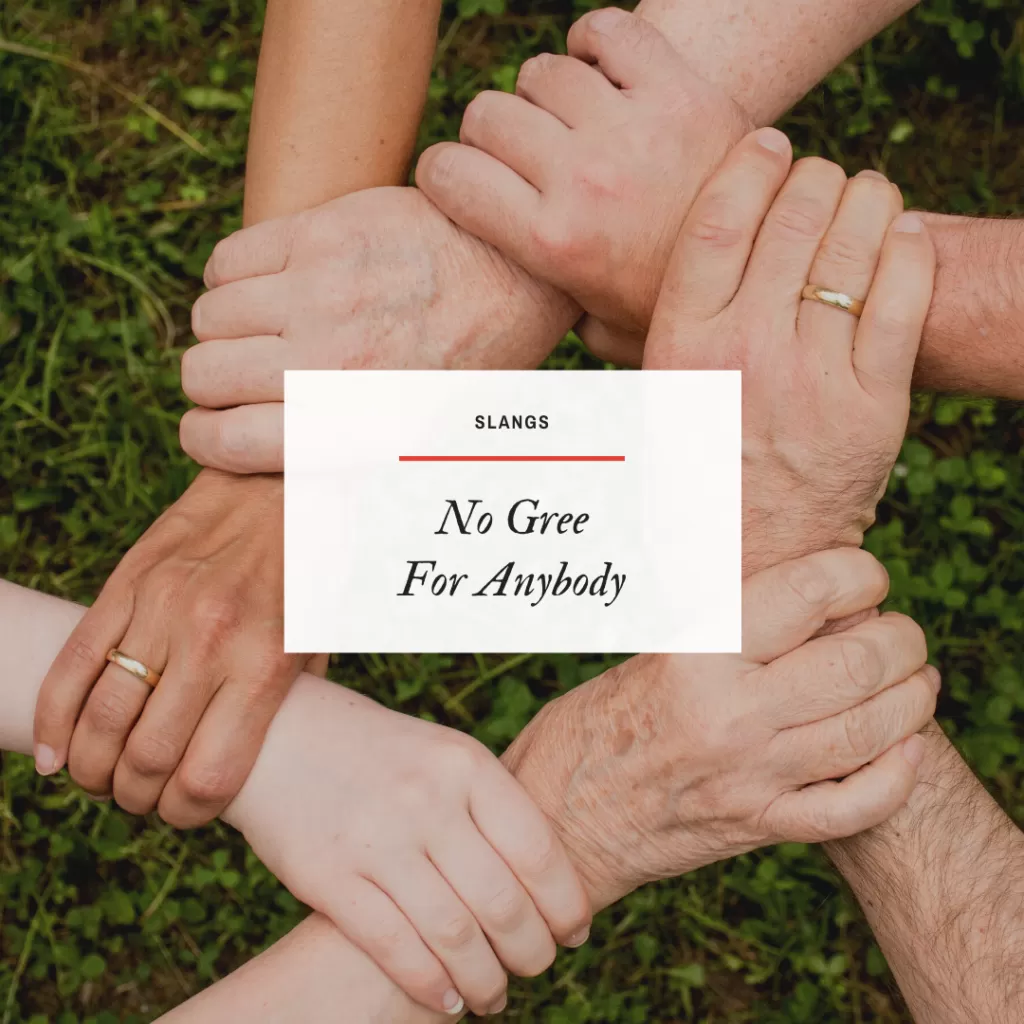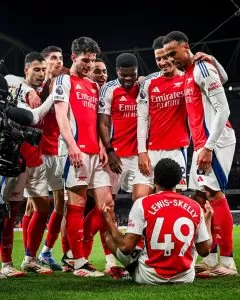A Deep Dive into Nigerian Slang: “Chakam” and Other Popular Terms

Nigeria, with its vibrant culture and linguistic diversity, has given the world a rich tapestry of slang, largely rooted in Nigerian Pidgin English, Yoruba, Igbo, Hausa, and other local languages. These slangs are more than just words; they’re a reflection of the country’s dynamic youth culture, humor, and resilience. One such term, “chakam”, has recently surfaced in specific contexts, meaning “to take a screenshot of a picture.” While not yet mainstream, it’s a fascinating addition to Nigeria’s ever-evolving slang lexicon. In this article, we’ll explore the meaning and usage of “chakam,” alongside other popular Nigerian slangs, providing a comprehensive guide to their meanings, cultural significance, and examples.
What Does “Chakam” Mean?
“Chakam” is a Nigerian slang term that refers to taking a screenshot of a picture, often used in digital or social media contexts. For example, you might hear someone say, “Omo, chakam that meme quick!” meaning “Take a screenshot of that meme fast!” While the term isn’t widely documented in mainstream sources like Pulse Nigeria or BBC, it appears to be a niche or emerging slang, possibly popularized in specific online communities, such as WhatsApp groups, Instagram, or X.
The origin of “chakam” is unclear, but it could be an onomatopoeic invention mimicking the sound of a camera shutter or a playful adaptation of existing slang. Its usage reflects Nigeria’s tech-savvy youth culture, where screenshots are a common way to capture fleeting moments, from funny memes to juicy WhatsApp chats. For instance:
- “Chakam that status before e disappear!” (Screenshot that WhatsApp status before it vanishes!)
- “I chakam her post, e too funny.” (I took a screenshot of her post; it’s too funny.)
As digital communication grows, terms like “chakam” highlight how Nigerians adapt language to fit modern contexts. If you’re hearing “chakam” in specific regions or platforms, it could be gaining traction, and a quick scan of X posts could reveal more about its spread.
The Broader World of Nigerian Slang
Nigerian slang is a melting pot of creativity, blending Pidgin English with local languages and global influences. These terms are used in everyday conversations, music, Nollywood movies, and social media, making them a vital part of the country’s cultural identity. Below is a curated list of popular Nigerian slangs, their meanings, and how they’re used, drawing from sources like Pulse Nigeria, BBC, and Matador Network.
1. Wahala
- Meaning: Trouble, problem, or stress.
- Usage: Used to describe any situation that’s messy or problematic.
- Example: “You wan bring wahala for my head?” (Are you trying to cause trouble for me?)
- Cultural Note: “Wahala” is versatile and can be playful or serious, depending on the tone. It’s a staple in Nigerian conversations, reflecting the hustle of daily life.
2. Japa
- Meaning: To flee, escape, or emigrate, often for better opportunities abroad.
- Usage: Popular among youths discussing migration or avoiding trouble.
- Example: “I wan japa go UK next year.” (I want to move to the UK next year.)
- Cultural Note: “Japa” gained prominence with Nigeria’s brain drain, symbolizing the dream of a better life abroad.
3. Sabi
- Meaning: To know, understand, or be skilled at something.
- Usage: Used to acknowledge knowledge or expertise.
- Example: “You sabi cook jollof like this?” (Do you know how to cook jollof like this?)
- Cultural Note: “Sabi” is a Pidgin staple, reflecting confidence in one’s abilities.
4. Chop
- Meaning: To eat, enjoy, or spend (often money).
- Usage: Can refer to literal eating or metaphorically “consuming” resources or experiences.
- Example: “I don chop breakfast o.” (I’ve eaten breakfast, or I’ve been heartbroken.)
- Cultural Note: The phrase “chop breakfast” has evolved to mean getting dumped or disappointed, a nod to Nigeria’s humorous take on setbacks.
5. Gbege
- Meaning: A big problem or mess.
- Usage: Used for serious issues or chaotic situations.
- Example: “This project na gbege o.” (This project is a big mess.)
- Cultural Note: “Gbege” emphasizes scale, often used when things go spectacularly wrong.
6. Shine Your Eye
- Meaning: Be smart, vigilant, or aware.
- Usage: A warning to stay sharp, especially in tricky environments.
- Example: “Shine your eye for Lagos o.” (Stay sharp in Lagos.)
- Cultural Note: This phrase reflects Nigeria’s fast-paced urban life, where naivety can be costly.
7. Omo
- Meaning: Child, person, or friend, often affectionate.
- Usage: A casual way to address someone.
- Example: “Omo, you try o.” (Friend, you did well.)
- Cultural Note: Derived from Yoruba, “omo” is a warm, inclusive term used across Nigeria.
8. Ajebutter
- Meaning: Someone raised in wealth or comfort, often seen as soft or posh.
- Usage: Used to describe privileged or sheltered people.
- Example: “That guy na ajebutter, e no sabi suffer.” (That guy is posh; he doesn’t know hardship.)
- Cultural Note: Contrasts with “ajepako” (someone from a tough background), reflecting Nigeria’s class dynamics.
9. Kolo
- Meaning: To go crazy or act irrationally.
- Usage: Describes wild or erratic behavior.
- Example: “The guy just kolo for club.” (The guy went crazy at the club.)
- Cultural Note: “Kolo” is playful but can also describe genuine mental distress, depending on context.
10. Sofri Sofri
- Meaning: Take it easy or slowly.
- Usage: Advice to relax or proceed cautiously.
- Example: “Sofri sofri, no rush am.” (Take it easy, don’t rush it.)
- Cultural Note: Reflects Nigeria’s laid-back yet pragmatic approach to life’s challenges.
11. Snap
- Meaning: To take a photo or selfie, often on Snapchat.
- Usage: Common in social media contexts.
- Example: “She dey snap everywhere for party.” (She’s taking photos everywhere at the party.)
- Cultural Note: Ties into Nigeria’s love for documenting moments, especially among Gen Z.
12. Gist
- Meaning: Gossip, news, or story.
- Usage: Used to share or request updates.
- Example: “Wetin be the gist na?” (What’s the gossip?)
- Cultural Note: “Gist” fuels Nigeria’s vibrant social scenes, from markets to X timelines.
13. Vibe
- Meaning: Mood, energy, or atmosphere.
- Usage: Describes a person’s aura or a place’s feel.
- Example: “This club get vibe o.” (This club has great energy.)
- Cultural Note: Borrowed from global slang, “vibe” is now a Nigerian favorite, especially in music.
14. Drag
- Meaning: To insult, roast, or criticize publicly.
- Usage: Common on social media, especially X.
- Example: “Dem dey drag am for X o.” (They’re roasting him on X.)
- Cultural Note: “Dragging” is a sport in Nigerian online culture, blending humor and shade.
15. Scope
- Meaning: To check out, observe, or flirt subtly.
- Usage: Often used in romantic or curious contexts.
- Example: “I dey scope that babe.” (I’m checking out that girl.)
- Cultural Note: “Scope” captures Nigeria’s playful approach to social interactions.
The Cultural Significance of Nigerian Slang
Nigerian slang isn’t just about communication; it’s a cultural glue that binds generations and regions. From Lagos to Abuja, Port Harcourt to Kano, these terms transcend ethnic boundaries, uniting Nigeria’s 200 million-plus people through shared humor and creativity. Slang evolves with technology, music, and global trends, as seen with terms like “chakam” and “drag,” which thrive in digital spaces.
Pidgin English, the backbone of most Nigerian slang, is a language of accessibility, spoken by millions regardless of education or class. It’s the voice of the streets, markets, and social media, amplified by artists like Burna Boy, Wizkid, and comedians like Basketmouth. Slang also reflects Nigeria’s resilience—terms like “japa” and “wahala” capture the hustle and challenges of life, while “vibe” and “omo” celebrate joy and community.
Where Is “Chakam” Headed?
While “chakam” is still a niche term, its focus on screenshots aligns with Nigeria’s growing digital culture. With over 30 million Nigerians active on social media (according to Statista), terms tied to online behavior are likely to spread. If “chakam” catches on, we might see it in memes, Nollywood scripts, or even Afrobeat lyrics. A real-time search on X could reveal whether it’s gaining traction, but for now, it’s a gem in specific circles.
Conclusion
Nigerian slang, from “chakam” to “wahala,” is a living, breathing part of the country’s identity. These terms are more than linguistic quirks; they’re a testament to Nigeria’s creativity, humor, and adaptability. Whether you’re screenshotting a meme with “chakam,” dodging “wahala,” or catching a “vibe,” Nigerian slang offers a colorful lens into the nation’s soul. Want to explore more? Drop a comment with your favorite slang, or let’s check X for the latest terms making waves!






